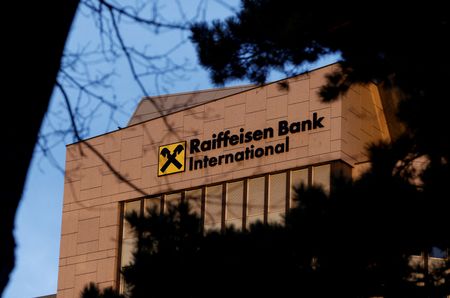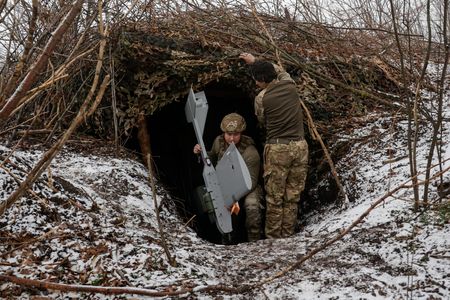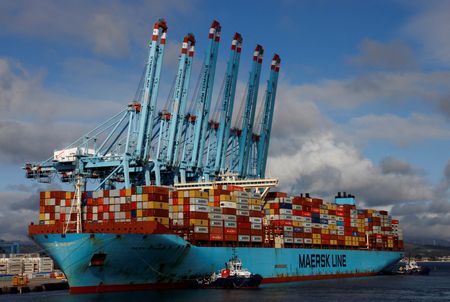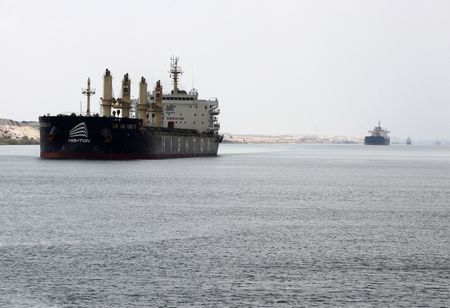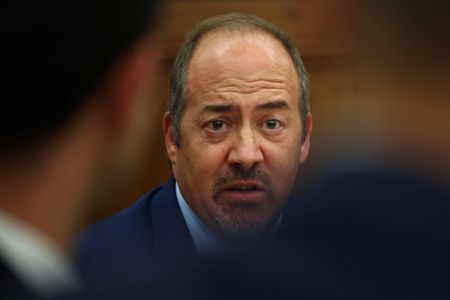By Tom Sims and Alexandra Schwarz-Goerlich
VIENNA (Reuters) -Austria’s Raiffeisen Bank International said on Tuesday it would further decrease its extensive business in Russia in agreement with the European Central Bank.
Raiffeisen Bank (RBI) has been under pressure from authorities on both sides of the Atlantic to reduce its footprint in the country following the war with Ukraine, part of an effort to isolate Russia by reinforcing sanctions on banking and choking off access to Western goods.
RBI is the biggest Western bank in Russia.
Its pledge on Tuesday lacked detail but it said in April that it would be required by the ECB to further decrease its business in Russia.
“RBI will drastically reduce Raiffeisenbank Russia’s business even further in conformity with ECB requirements,” the bank said on Tuesday as part of its quarterly earnings announcement.
“Initial consequences for customers, such as restrictions in payments, have already taken effect.
Additional steps will follow.”
RBI’s shares rose more than 5% in mid-morning trade after the bank reported a 14% year on year rise in second quarter consolidated profit to 661 million euros ($715.4 million), beating analysts’ forecast of 523 million euros.
Erste Group Research said it was sticking to its positive recommendation and that RBI’s business excluding Russia was “doing well and remains substantially undervalued”.
RBI generated half of its post-tax profit in Russia during the first six months of the year, but those earnings stay with the local subsidiary because of Western sanctions.
In May, RBI dropped a bid for a 1.5 billion euro industrial stake linked to Russian tycoon Oleg Deripaska after intense U.S.
pressure, part of a plan designed to unlock the bank’s funds frozen in the country but opposed by the United States.
RBI reiterated on Tuesday that it was working to sell or spin off its Russia unit, but that it couldn’t make a forecast on the timing because any deal requires multiple approvals.
RBI said in April that the ECB was demanding it cut loans to customers in Russia by up to 65% compared with the third quarter of last year and pare back international payments from Russia by 2026.
Italy’s UniCredit has also been under pressure from the ECB to reduce its business in Russia.
($1 = 0.9240 euros)
(editing by Rachel More, Kirsten Donovan and Susan Fenton)

